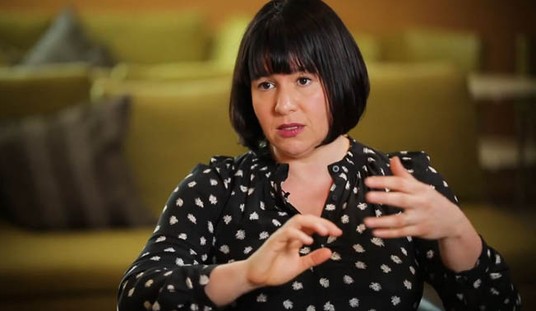“The Brody File has coined a new phrase: The ‘Teavangelical Party.’ The polling from the 2010 Midterm Elections proves it.
“According to a Public Opinion Strategies poll that has assessed the Midterm Election results from Tuesday,(conducted for the Faith and Freedom Coalition) 52 percent of all people who identified themselves as part of the Tea Party movement are also conservative Evangelicals…
“Here’s the bottom line: conservative Evangelicals see fiscal issues as moral issues. Does that mean the abortion and traditional marriage issues are a thing of the past? Hardly. It just means the focus right now is on runaway spending but remember if the Tea Party is successful then that will translate into the Republicans being in power. If the GOP comes into power, they will (supposedly) promote and attempt to put in place pro-family policies, which works perfectly for social conservatives.”
***
“[Ralph] Reed echoed the common theme in this election cycle that many conservative Christians also identified themselves as Tea Party members: ‘These movements are inextricably intertwined and there is an enormous amount of overlap.’…
“‘I think that the social conservative pro-family movement is in the middle stages of a fascinating evolution,’ Reed said, explaining that he sees the movement embracing conservative fiscal issues. ‘I think what you’re going to find is more and more people of faith working on a broader range of issues, staying true to their pro-life, pro-marriage, and pro-religious freedom (views,) and also recognizing that a big out-of-control government that is bankrupting future generations is not just a fiscal issue, it’s a moral issue.'”
***
“Exit polling reveals that gay and lesbian voters played a critical role in the Republican Party’s historic gains in the U.S. House on Tuesday night. According to CNN, 31% of self-identified gay voters supported Republican candidates for the U.S. House. This number is a dramatic increase from the 19% GOP House candidates won among gay voters in 2008. ‘Exit polling makes it clear gay voters played an important role in bringing conservative leadership to Congress,’ said Jimmy LaSalvia, Executive Director of GOProud, the only national organization representing gay conservatives and their allies. ‘It also proves something we have been saying for months now – that the Tea Party’s message of limiting government is something that appeals to many gay Americans.’…
“‘We look forward to working with the new leadership in the House to craft conservative solutions on issues like social security, taxes, healthcare and the economy, solutions that will improve the lives of all Americans – but especially gays and lesbians,’ concluded LaSalvia.”
***
“Q: Ken Buck, certainly a Tea Party candidate, had a hard time in Colorado. Despite strong financial support, he seemed to stumble over social issues like abortion… Buck didn’t manage to catch the wave because Colorado is a fairly purple state and Buck/Tea Party misread the electorate.
“A: The strength of the movement is the focus on fiscal issues, which tend to be a uniting factor among a vast majority of Americans, especially given the current economic climate. Social issues have distracted and proven divisive in close races – like Ken Buck in Colorado.”
***
“In the 2010 contest for House seats, Republicans won stronger support from people in the major religious groups — and even the unaffiliated who usually vote Democratic, an analysis of exit polls show…
“These results are interesting because the 2010 election didn’t focus on religious or social issues like same-sex marriage and ‘yet the pattern of the religion vote looks like 2004’ when those issues were prominent, said John C. Green, political science professor at the University of Akron and scholar on the influence of religion in politics.
“‘I think that this shows, if nothing else, that religious affiliation is a very important part of the structure of our politics, and even when [faith and social issues] aren’t on the front burner … it nonetheless has an influence on how people vote,’ he said.”
***
“Last week’s New York Times/CBS News poll found that for the first time since 1982, when polling began, the GOP has the edge among women. For the most part, the bulk of these voters aren’t moving to the GOP so much as they are fleeing the Democrats. That’s how it works in a two-party system; one side’s loss is the other side’s gain.
“And that is why the Republicans are going to start turning on each other like drag queens at a wig sale. It’s the nature of politics that when you’re out of power, everyone can agree on what the top priority should be: Get back in power. But, the only way to get back in power is to attract people who might not share all of your goals or your passion. Majority coalitions by definition have diverse groups within them. FDR’s coalition had everybody from Klansmen to blacks, socialists to industrialists. The new GOP coalition isn’t nearly so exotic, but it does have its internal contradictions…
“More important than the intraconservative fights is the fact that the moderates, independents, women and young people fleeing the Obama coalition to make up a new Republican majority aren’t much interested in lending their numerical and political weight to Senate Minority Leader Mitch McConnell’s agenda to make Obama a ‘one-term president.’ Much like the Tea Partiers, they would like to see the GOP accomplish something substantive over the next two years. The arguing begins the second the GOP starts acting on that substance.”








Join the conversation as a VIP Member